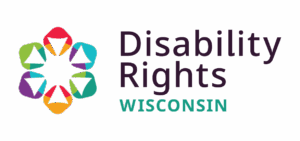Voting Rights Groups Urge Wisconsin Officials to Preserve In-Person Voting, Develop Emergency Plan to Protect Voting Rights if Outbreak Continues
In friend-of-the-court brief, advocates assert that preserving in-person voting as an option is vital to avoid widespread disenfranchisement
FOR IMMEDIATE RELEASE
March 31, 2020
Contact: Channing Grate
MILWAUKEE – Wisconsin voting rights groups today said in-person voting must remain an option in the upcoming elections and called on state and local elections officials to develop a comprehensive plan to preserve voting rights if the COVID-19 outbreak continues.
In a friend-of-the-court brief filed today, the ACLU of Wisconsin, Wisconsin Conservation Voices, and Disability Rights Wisconsin noted that denying voters the opportunity to cast a ballot in person would disproportionately impact low income voters, voters of color, voters with disabilities, and those without access to reliable mail service.
“Mail absentee voting is vital but insufficient to ensure a free and fair election on April 7th,” said Chris Ott, ACLU of Wisconsin executive director. “Thousands of Wisconsin voters, especially low-income voters and voters of color, rely on in-person voting to participate in elections and make their voices heard. In-person voting must remain an option on April 7th, and election authorities must immediately develop a plan to safeguard the voting rights of every eligible voter if this crisis continues or recurs.”
The brief, filed in the Lewis v. Knudson case—one of several filed in federal court in Madison to address the effect of COVID-19 on the election—noted that many Wisconsin voters rely on same-day registration as a routine aspect of their voting experience. In each presidential election since 1984, between about 10 and 15% of voters—hundreds of thousands of people—have registered at the polls.
“People with disabilities should not be blocked from the ballot by a lack of in-person voting sites or the failure of state and local officials to prepare for this crisis,” said Kit Kerschensteiner, Director of Legal and Advocacy Services, Disability Rights Wisconsin. “While expanding access to vote-by-mail is essential, it will not accommodate all eligible voters – especially blind and visually-impaired voters who need to use accessible voting machines at in-person polling sites.”
“We’ve seen through our Native Vote program that, in many Native communities in Wisconsin, access to the internet and cell service is limited, making it extremely difficult to order absentee ballots,” said Kerry Schumann, Executive Director of Wisconsin Conservation Voices. “Add to that the way mail is delivered in rural reservation communities – primarily by P.O. Box – and it becomes even more difficult to vote absentee. We need to be prepared for the possibility that elections later in the year are impacted by the pandemic and develop emergency plans to make voting accessible to everyone.”
“It’s clear that election authorities – understandably – did not anticipate and prepare for this crisis, resulting in a chaotic and ad-hoc response,” said Karyn Rotker, ACLU of Wisconsin senior staff attorney. “But since state and local elections officials are now aware of the risk, they must immediately develop comprehensive emergency plans that will prevent further disruption and safeguard the rights of every eligible voter if this outbreak continues.”

